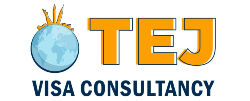Study in France for Indian Students – September 2024 Intake

- France is the most famous tourist destination in the world for multiple reasons. Besides its natural and cultural beauty, France has an extensive background of intellectual strength. The country’s universities are well known for offering excellent education in various fields, attracting students from around the globe seeking a France Study Visa.
- In French universities, there is a wide range of programs that are both standard and unique, ranging from arts and humanities to science and engineering.
- Now you can ask why you should study in France. There are many reasons why one should study abroad in France, such as an opportunity to join a top university and be fully immersed in a language and society that is known worldwide. Living in a globally-minded community would enhance your education and broaden your perspectives.
- But before relocating to France for higher study, students must complete the application process for a France student visa. In this piece of guide, we will discuss about the significant things to take care while applying for student Visa for France.
- 9 Significant Things to Take Care While Applying for France Study Visa
Here are nine important things you should keep in mind when applying for a visa to Study in France:
1) Right Business School or University
Getting into the right school sets the stage for your future academic and career goals. France has many well-known business schools and universities known for their creative programmes and high academic standards.
Language requirements for Universities in France
Most degrees are taught in French in Universities in France, but you will find various study programs taught in English. Specifically at Masters and Ph.D. levels. Universities in France accept the following language tests:
- For French proficiency
- DELF or DALF
- TCF
- For English proficiency
- IELTS Academic(International English Language Testing System)
- TOEFL iBT( Test of English as a Foreign Language)
- PTE Academic(Pearson Test of English)
2) Best Suitable Program to Study
- For a fulfilling educational experience, it is important to look into programmes that match your academic interests and job goals. Many programmes in France are designed to meet the needs of international students. Business programmes are very common. Master of Management (MIM) degrees in Finance, HR, and Marketing prepare students for worldwide success.
- Also, choosing an 18-month programme gives you plenty of time to focus on your studies and look for student jobs. In France, many schools offer internships or part-time jobs that give students important real-world experience and the chance to meet new people.
3) Your Documents Checklist
- Visa applicants must pay great attention to every detail and have all the necessary papers. Documents that are often needed are:
- Proof of being enrolled: A letter from the school you want to attend stating that you have been accepted into a programme.
- Statements of money: Proof that you have enough money to pay for education, living costs, and other costs related to the programme.
- Coverage for health insurance: Proof that you have full health insurance that covers your whole stay in France.
- Passport that works: Check that your passport has two blank pages for visa stamps and is valid in France.
You must carefully examine the list of materials the French study abroad consultant or office provides to ensure the application procedure runs smoothly.
4) Post Study Work Option
- Knowing what jobs, you can get after finishing school in France is important for planning your future career. France has policies that are good for international students who want to find work after graduation. For example, you can stay longer to look for work or go to school for longer.
- With the temporary residence card, students can stay in France and look for work for up to 24 months after graduation. During this time frame, graduates can work full-time in any area without needing any other work authorization. Additionally, graduates from French schools may be able to get a “Passport Talent” visa, which makes the transition from student to job easier.
5) Employment & Job Opportunities in France
- France’s strong economy and wide job opportunities are good news for skilled workers in many fields. Foreign graduates can employ their talents and knowledge in technology, healthcare, finance, and hospitality.
- Make local connections and check your school’s internship or job placement programmes to boost your chances of finding meaningful work in France. Speaking and writing French well can increase your work prospects and help you integrate into French culture.
6) Settlement Options with Family After Study
- Everyone needs to know the visa rules of Student Visa for France from India and how to reconnect with family if they want to live in France permanently or bring family members. Family reunions and long-stay visas for dependent children and spouses are available in France.
- To reconcile with your family, you must have a stable salary, a suitable home, and enough health insurance for everyone. Planning and talking to immigration officials or lawyers can speed up family reunification and help your loved ones adjust.
7) Diplomatic Relationship of France with India

- France and India have diplomatic links, including working together, sharing culture, and making strategic partnerships in many areas. High-level visits and projects led by leaders like Prime Minister Narendra Modi have strengthened relations between the two countries and encouraged them to work together in areas like defence, science, education, and more.
- These diplomatic ties help Indian students learn in France through academic exchange programmes, scholarships, and cultural projects. The fact that there are Indian societies and cultural groups in France also helps Indian students get used to living in a new country.
8) Affordability of Cost in France
- Even though France has a high standard of life and a world-class school system, you need to know how much it costs to live there to prepare your money. The cost of living varies by city; Paris costs more than other cities.
- Lodging, transportation, food, medical bills, and personal expenses are crucial. Live in student accommodation or shared apartments, travel the bus or train, and cook to cut costs. Another way for international students to get money is to look into scholarship programmes, part-time jobs, and financial aid programmes.






